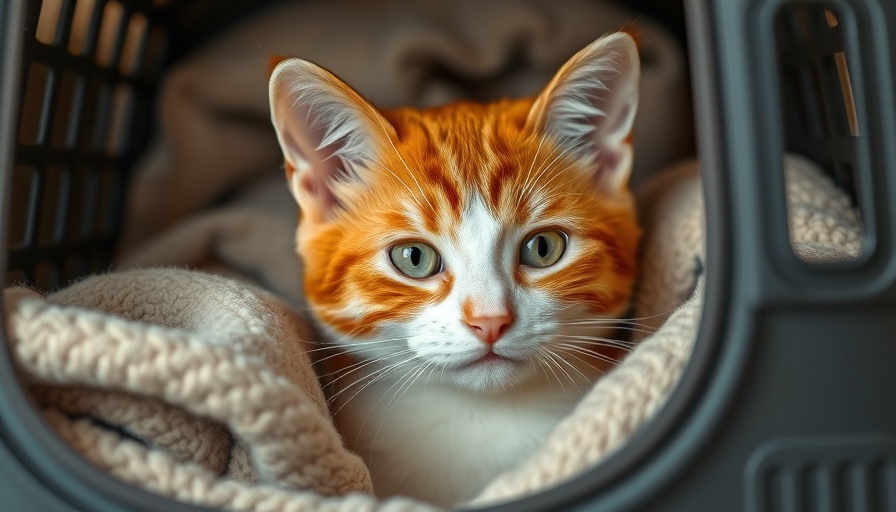
Why Senior Dogs Make Perfect Companions
When it comes to adopting a new furry friend, many people instinctively gravitate towards puppies, envisioning energetic playtimes and training sessions. However, it’s essential to remember that senior dogs also bring a wealth of love and companionship to the table. In fact, adopting a senior dog can enrich your life in ways you hadn't thought possible. Calm, loyal, and often already house-trained, there's something truly charming about welcoming an older pup into your home.
The Overlooked Gems in Shelters
It’s a heartbreaking statistic: approximately 5.8 million dogs enter U.S. shelters each year, with senior pups facing the greatest challenges. Only about 25% of senior dogs find their forever homes, while younger dogs and puppies have a much higher adoption rate. This disparity can result in sweet older dogs spending extended periods in shelters, waiting for someone to recognize their worth.
Many potential pet parents carry misconceptions about senior dogs, fearing potential health issues, higher healthcare costs, or the emotional struggles related to a shorter lifespan. However, with great rewards often come challenges, and the love of a senior dog is undeniably worthwhile.
Benefits of Adopting Senior Dogs
One of the most significant benefits of adopting a senior dog is their temperament. Generally speaking, older dogs display calmer behaviors and tend to be less destructive compared to their younger counterparts. This can provide a much-needed remedy for those who prefer a more relaxed household. Moreover, senior dogs are often well-trained, eliminating some of the initial hurdles of pet ownership such as housebreaking and chewing destruction.
Learning New Tricks: The Old Adage Holds True
What's more, senior dogs are not set in their ways. Just like younger dogs, they possess the ability and eagerness to learn old and new tricks. Adoption presents an opportunity for continued learning and bonding, which can lead to stronger relationships between the dog and their human companion. After all, teaching your pup something new can enhance day-to-day interactions and provide mental stimulation for both parties.
Preparing for a Senior Dog: What to Know
Bringing a senior dog home means being prepared to accommodate their specific needs. Depending on their health status and mobility, you may need to invest in assistance tools like dog ramps and stairs. Familiarizing yourself with the dog's background can also help make the transition smoother, especially if you know of any past traumas. Taking these steps ensures a loving and supportive environment for your new best friend.
Embracing the Journey
Ultimately, adopting a senior dog is about more than just offering them a home; it’s about embracing the journey of love and companionship that they provide. These pets have a profound ability to enrich our lives with their affection, playfulness, and dedication. By choosing to adopt an older dog, you can create a win-win situation where both you and your new pet blossom together.
If you are considering adding a furry friend to your family, don’t overlook the senior pups waiting for your love at local shelters. You might just find your new best friend and a loyal companion for years to come.
 Add Row
Add Row  Add
Add 




Write A Comment